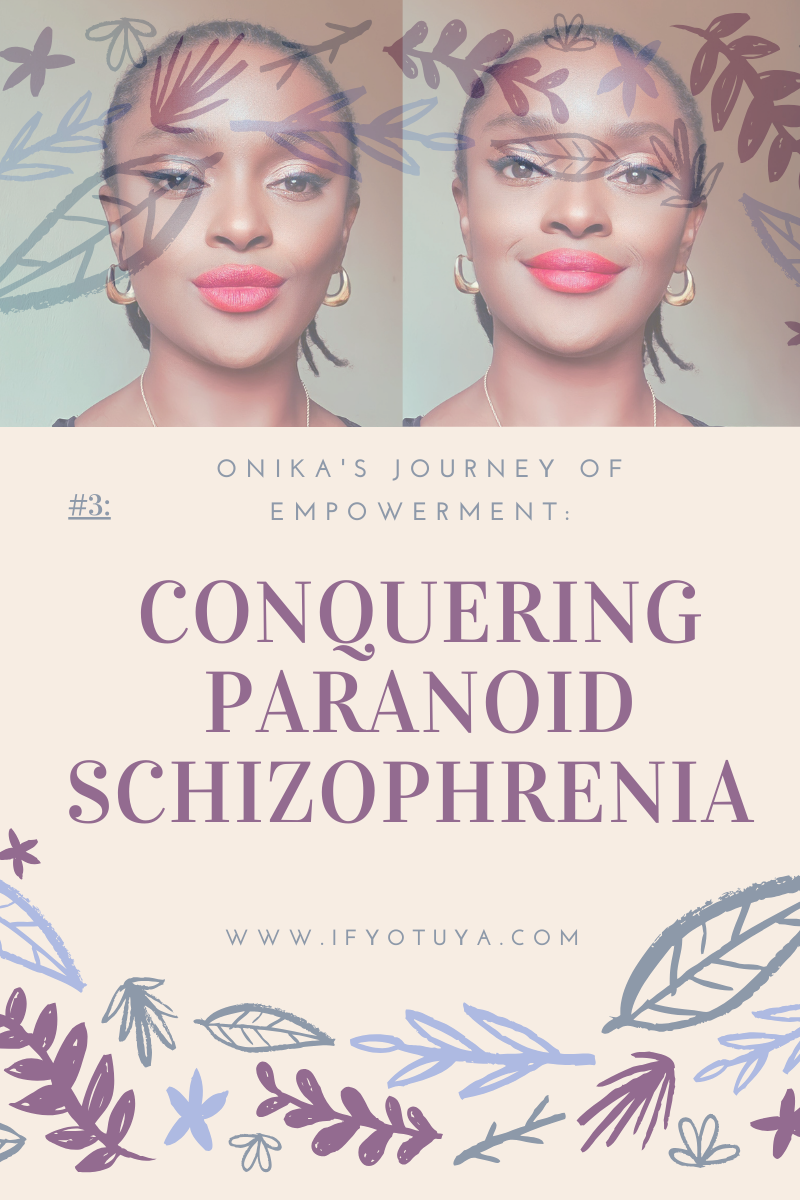– by Ify Otuya
Overcoming mental illness is a challenging journey that requires patience, support, self-determination and a combination of different approaches, which can include therapy, medication, lifestyle changes and self-care practices. The story of Onika is a powerful trenches to triumph story of a young woman who fought the odds to triumph over her paranoid schizophrenia and influence the world around her. Read on.
Onika was a name that echoed through the streets of Nigeria like a melodious refrain. She was a woman of remarkable beauty, fierce determination, and an undeniable talent as a musician. Her voice could soothe the souls of the weary and ignite passion in the hearts of the hopeless. Onika had risen to prominence in the music industry, her career soaring like a majestic eagle, but little did she know that the very wings that carried her to the skies would soon be clipped.
In the beginning, Onika’s journey seemed like a fairy tale come true. Her voice was discovered at a young age, and she was quickly signed to a prestigious record label. But as her popularity grew, so did the vices of the industry. Men in powerful positions saw in her not just a talented artist, but an object of desire. They approached her with lecherous intentions, their lust overshadowing her artistic prowess. What was worse for her, unlike the bulk of her female contemporaries, she didn’t have a dominant male figure on her management team who could challenge these men or chase them off to protect her in one way, shape or form.
Despite her strength, Onika could not escape the relentless advances and predatory behavior. Each encounter chipped away at her spirit, leaving her feeling exploited and betrayed. The once vibrant artiste began to lose faith in herself and her music. The industry that promised dreams now held her captive in a nightmare she could not wake from.
As the weight of her experiences pressed upon her, Onika’s mind began to fray. Paranoia crept into her thoughts like a haunting specter. Every compliment felt like a veiled insult, every interaction a sinister plot against her. She withdrew from friends, family, and even her most loyal fans, fearing that anyone who approached her had ulterior motives.
Paranoid schizophrenia gripped Onika like a vice, distorting her reality and plunging her into a world of darkness and isolation. The stage that once felt like home now seemed like a sinister stage set, filled with hidden dangers and enemies lurking in the shadows.
Her music suffered, her performances faltered, and the industry that had once celebrated her now turned its back. The media spun tales of her downfall, portraying her as a temperamental diva lost in her own delusions. But beneath the surface, Onika was a wounded soul, desperately seeking refuge from the demons that tormented her mind.
In the depths of her despair, a glimmer of hope emerged. An empathetic psychologist, Dr. Adebayo, saw beyond the headlines and recognized the signs of mental distress in Onika. Determined to help, he reached out to her with compassion and understanding, offering her a lifeline when she needed it most.
Dr. Adebayo worked tirelessly with Onika, gaining her trust through patience and empathy. Slowly, she began to open up about her experiences, her fears, and the hallucinations that plagued her days and nights. With therapy and the right medication, the grip of paranoid schizophrenia began to loosen.
Onika’s road to recovery was far from smooth. There were setbacks, moments of doubt, and days filled with tears. But with the support of Dr. Adebayo, her family, and a few close friends who stood by her side, she found the strength to face her demons head-on.
As her mental health improved, so did her music. Onika used her art as a form of catharsis, pouring her raw emotions into each note and lyric. Her songs became a testament to her resilience and a beacon of hope for others struggling with their own battles.
News of Onika’s transformation spread, and her loyal fans rallied around her once again. The same industry that had abandoned her now witnessed her triumphant return, not just as an artiste but as a symbol of strength and courage. Her story resonated with people across Nigeria and beyond, reminding them of the importance of compassion and empathy for those facing mental health challenges.
Onika’s journey was a poignant reminder that even in the darkest of times, there is hope for redemption and healing. Her story prompted a much-needed conversation about the pressures and exploitation faced by women in the music industry and the urgent need for mental health support and awareness.
With Dr. Adebayo’s guidance, Onika not only conquered her paranoid schizophrenia but also found her voice once more. And as she stood on stage, bathed in the spotlight, she knew that this time, she was not alone. Her music now carried the power not just to entertain but to inspire and heal, creating a lasting impact on all who heard her songs.
Q: Why did Dr Adebayo reach out to her rather than leave the matter to her family to resolve? Was he disrespectful of her family’s role in her life or career?
A: Dr. Adebayo reached out to Onika not out of disrespect for her family’s role in her life or career, but rather because he recognized the urgency and sensitivity of her mental health condition. Mental health issues are complex and require specialized expertise to diagnose and treat effectively. While family support is crucial, it may not always be sufficient in dealing with severe mental health disorders like paranoid schizophrenia.
Mental health professionals like Dr. Adebayo have the training and experience necessary to identify and address mental health issues with a comprehensive approach. They can provide specialized therapies, counseling, and medications tailored to the individual’s needs. In Onika’s case, her paranoid schizophrenia required professional intervention and treatment beyond what her family could offer on their own.
It is important to note that involving a mental health professional doesn’t negate the importance of family support. In fact, Dr. Adebayo likely worked in collaboration with Onika’s family, keeping them informed and involving them in the treatment process. A supportive family environment can significantly aid in a person’s recovery journey. Mental health professionals often encourage open communication and cooperation with the patient’s support system, as it can contribute positively to the healing process.
By reaching out to Onika, Dr. Adebayo demonstrated empathy and concern for her well-being. His intention was to provide the necessary expertise to help her cope with her condition and support her in rebuilding her life and career. Working alongside her family, he created a more holistic and effective support network, allowing Onika to have the best chance at recovery and success.
Which mental illness or experiences would you like me to feature in upcoming stories? Your ideas matter and they could help others.
Struggling with mental health or need expert advice? I offer personalized guidance and support rooted in both professional knowledge and lived experience. Let’s work together to create an advisory session that works for you—tailored to your unique needs. Reach out today for an advisory session! +2348086204343.
Author’s Bio:

Hi, I’m Ify Otuya, a mental health advocate and speaker and also the founder of June E-waste Academy. With expertise in entrepreneurship, my background lies in the arts, e-waste management and marketing. Through my advocacy, I have empowered many to confront mental health challenges and find hope in their journeys. I create articles and empowering mental health recovery stories to inform, grow empathy and compassion for individuals with mental health challenges and to destigmatize mental health.
I am currently building my community to bring hope and to inspire others to live their best lives today. To schedule me for a speaking event or interview, kindly email me at: missotuya@gmail.com. Visit www.ifyotuya.com to join me on my journey towards a mentally fit future.



